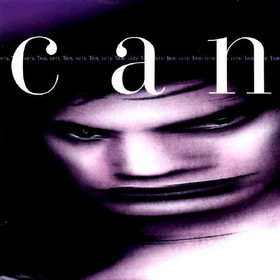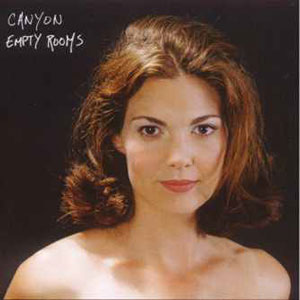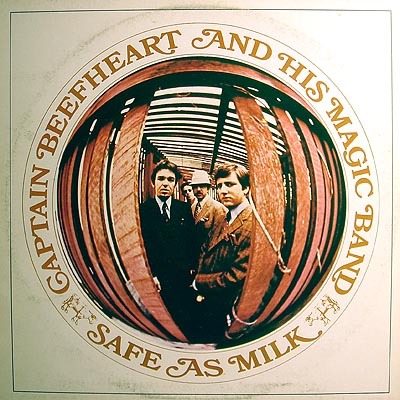

Candypants only made one album but it's a great one. Candypants (2000) is a fun bit of knockabout twee power-pop, with a nice nerdy, retro vibe to it. It's all lively, slightly sarky, pop music which is sort of akin to the lighter end of April March's type of songwriting. There's more silliness here though and it's all done with tongue in cheek and while some of the songs aren't particularly brilliantly written, the ones that are make up for it. It's basic stuff but completely loveable and there are one or two absolutely top flight examples of the genre on here ('Dishy' is particularly ace).

As the Broken Social Scene's popularity increased, so attention started gathering for the various other bands and solo projects that its members were involved in. Founder members Brendan Canning and Kevin Drew each took the opportunity to make solo albums, but using various members of the BSS as support. Brendan Canning's Something For All Of Us (2008) is probably the slightly weaker of the two but it's still a decent addition to the vast BSS catalogue. Canning seems to be more interested in the textures rather than the structure of songs and as a result the tunes on his album are denser, have more stuff going on in them but aren't as immediately appealing. There are some charmers ('Antique Bull' is lovely) and it's generally a really decent record but it takes a while for its finer points to reveal themselves. If anything it sounds like a laid-back version of the standard BSS albums.

 Laura Cantrell, like Neko Case, moved away from a burgeoning little indie rock career by developing an interest in country songwriting of the Emmylou Harris school. Where Case has retained a somewhat edgy, unpredictable nature in her records, Cantrell has immersed herself wholesale in the style and her first album, Not the Tremblin' Kind (2000) is brilliant evidence that this faintly old-fashioned style of country music is nowhere nearly run dry. It's an absolutely lovely record, and its faithful devotion to its sources is both a testament to Cantrell's love of the music and her pure understanding of how it works. There isn't a scent of pastiche about Cantrell's records and while at first listen you wonder whether this is a one-trick approach it quickly proves itself to be nothing other than a beautifully honest revival of a genre which seemed to have quietly died out. Second album, When the Roses Bloom Again (2002) is unsurprisingly more of the same, and is similarly a mix of mostly covers and a few originals, but this time round Cantrell's songwriting has come on in leaps and bounds and her songs stand up perfectly well next to the superbly chosen covers. Where Not the Tremblin' Kind could occasionally feel like she was trying out the style, When the Roses Bloom Again proves that she had learned it inside out and was able to write songs to rival the greats of the genre. 'Broken Again' for instance could have been written at any time in the last 60 years, and if that isn't a compliment to this kind of songwriting then nothing is. It's absolutely wonderful.
Laura Cantrell, like Neko Case, moved away from a burgeoning little indie rock career by developing an interest in country songwriting of the Emmylou Harris school. Where Case has retained a somewhat edgy, unpredictable nature in her records, Cantrell has immersed herself wholesale in the style and her first album, Not the Tremblin' Kind (2000) is brilliant evidence that this faintly old-fashioned style of country music is nowhere nearly run dry. It's an absolutely lovely record, and its faithful devotion to its sources is both a testament to Cantrell's love of the music and her pure understanding of how it works. There isn't a scent of pastiche about Cantrell's records and while at first listen you wonder whether this is a one-trick approach it quickly proves itself to be nothing other than a beautifully honest revival of a genre which seemed to have quietly died out. Second album, When the Roses Bloom Again (2002) is unsurprisingly more of the same, and is similarly a mix of mostly covers and a few originals, but this time round Cantrell's songwriting has come on in leaps and bounds and her songs stand up perfectly well next to the superbly chosen covers. Where Not the Tremblin' Kind could occasionally feel like she was trying out the style, When the Roses Bloom Again proves that she had learned it inside out and was able to write songs to rival the greats of the genre. 'Broken Again' for instance could have been written at any time in the last 60 years, and if that isn't a compliment to this kind of songwriting then nothing is. It's absolutely wonderful.

Third album Humming By the Flowered Vine (2005) is once again a mix of perfectly selected covers (Cantrell's taste is notoriously expansive and her knowledge of music history apparently equally so) and originals. There is a slightly different tone to this album though - there are songs that veer dangerously close to being country-pop and while in anybody else's hands that would be a horrifying development, for Cantrell it's just another opportunity to demonstrate just how adept she is. To be fair, the pop element is as muted as it possibly can be, this is no Garth Brooks album, but it is jauntier, bolder and has more of a sway in its hips than the first two albums. Once again, Cantrell's own songs are fantastic and easily stand up to the great covers, and if Humming By the Flowered Vine isn't Cantrell's best album, it's certainly the most enjoyable. I don't know what she was doing in the meantime but it was six years until her next album, 2011's Kitty Wells Dresses: Songs of the Queen of Country Music. Apart from the opening title track all of the songs are cover versions, either of songs that Wells had hits with back in the 1950's or songs that are in some way about or relevent to her. It's an odd concept and it really shouldn't work, but once again, with a depth of knowledge and understanding of the likes of Cantrell's there's no way that it could really fail. The whole album is a charm and although it takes more work to get to the true rewards than the previous immediately accessible albums, it is a great piece of work. There's no sense of diminishing returns in Cantrell's albums and whether that's because she's working so accurately in a timeless genre or because of her uncommon skill at recreating it, only time will tell I suppose.


Canyon's second album, Empty Rooms (2002), is a blustery bit of derivative rock which wears its various influences so proudly on its sleeve that it's difficult to get a handle on just what it is that it wants to be. Suffice it to say that their Neil Young urge is so severe that they even had the audacity to call one of the songs on Empty Rooms 'Mansion on the Mountain'. We've got a lot of spaced out atmospheric rockers here (most criminally of all occasionally sounding like something from the first Verve album) and we've got a carbon copy of 'Wish You Were Here', ever studied cliche in the rock canon is presented for inspection on Empty Rooms. However, it would be unfair to call it a classroom show and tell session because despite having absolutely zero originality they do manage to turn their blatant aping to their advantage here and there, and a couple of songs are genuinely affecting ('Lights of Town' and 'Ten Good Eyes' are pretty nice for instance).

Captain Beefheart's freak-out reputation is somewhat undermined by the content of his debut album, Safe As Milk (1967). Although it isn't exactly a straight blues-rock album, the peculiar touches that it does contain and fairly discreet. There are some unusual time signatures and Beefheart's lyrics (and unpredictable delivery) were abstract to say the least from the very beginning, but on the whole Safe As Milk is a scuzzy, scruffy blues rock album that fits pretty neatly into the crop of records that were appearing throughout the late 60's that took electrified blues boogie to a new, fuzzy level. It's certainly approaching the more extreme end of that output, but that's not to say that it is in any way inaccessible and it gives very little sign of the complicated stuff he would start putting out within a couple of years. If anything, Safe As Milk is a simply a fabulous piece of late 60's rock; it's even got a straight doo-wop based bit of swaying R&B in 'I'm Glad'. For all the deliberately antagonistic stuff that was to come from the Captain, Safe As Milk is simple charm. (PS, the Buddha CD reissue has a load of demos for the projected next album which never happened. This stuff gives a much clearer sign of where things were headed...)

No comments:
Post a Comment